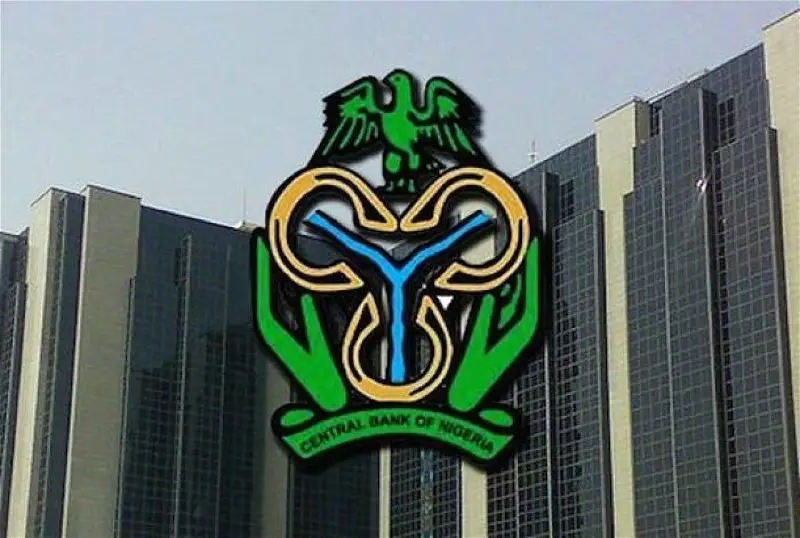Nigeria’s debt servicing gulped about N2.2bn in the first five months of this year, the latest data from the Central Bank of Nigeria have revealed.
This is almost half of the $4.8bn projected for the entire year by Fitch Ratings in a report that predicted Nigeria’s external debt servicing would rise by $400m to $5.2bn next year.
This is also despite the government’s claims that it is focusing more on borrowing from the domestic market.
According to the CBN International Payments Data, the FG spent the highest on debt financing in May at $854.36m, which is also the highest paid in a single month in the past year.
This figure is about 297 per cent higher than it spent on debt servicing in April and 286.49 per cent higher than the $221.05m the country spent in May 2023.
In April, the debt servicing gulped $215.20m, $276.16m in March, $283.22m in February and $560.52m in January.
The entire amount is about 96.32 per cent higher than what FG spent on debt servicing within the same period in 2023 which stood at $1.12bn.
According to FBNQuest Research, Nigeria’s external debt service payments increased by $1.1bn to $3.5bn in 2023, comprising $1.9bn and $1.6bn in market and non-market debt payments, respectively.
Based on the 2024 budget, the FG plans additional external borrowing of N1.8tn and another N1.1tn in loans from concessional lenders.
Toeing a similar path as Fitch Ratings, FBN Quest anticipates a rise in external debt service payments due to the FG’s plans to raise loans from the commercial debt market this year and an expected increase in borrowings from concessional sources.
Already, the Minister of Finance and Coordinating Minister of the Economy, Wale Edun, has revealed that Nigeria will be getting some funds from the World Bank in a few weeks.
Speaking during an interview on Channels TV, on June 2, the minister said, “In two weeks, the board of the World Bank will consider a $2.25bn package for Nigeria, of like virtually free or almost grant funding, very low interest. And it is not being given on conditionalities. A large part of it, $1.5bn is what they call Development Policy Financing.
“Essentially, it is in recognition of what has been done to stabilise the Nigerian economy and get it back on the growth path. The funding will come, at least, half of it, will come immediately after that board meeting. That’s what we are looking forward to. It just shows that we know how to use the multilateral development banks to our advantage. We don’t agree with everything they say. We don’t have to agree or they (have to) agree with our homegrown policies for trying to get Nigeria moving again.”
Another source of funding for the FG this year would be the Eurobond planned for the second half of 2024. Bloomberg reported that Citibank NA, Goldman Sachs, JPMorgan Chase & Co were hired as advisors on the proposed Eurobond issuance.
Meanwhile, CBN data indicated that Letters of Credit declined significantly in the first five months of the year compared to the same period in 2023.
Letters of credit, which is a mode of payment used for the importation of goods dipped by 63.26 per cent to $279m from $762.03m in the first five months of 2023.
LCs play a vital role in facilitating international trade in Nigeria, offering a reliable and secure payment method that benefits both importers and exporters.
A CSL report blamed the dip on the nation’s foreign exchange situation which had significantly impacted the volume of letters of credit issued.
“The FX crisis, characterised by a shortage of foreign currency, depreciation of the Naira, and stringent foreign exchange controls by the Central Bank of Nigeria has led to several challenges affecting the issuance and utilisation of LCs in the country. The depreciation of the Naira has made it more expensive for importers to secure the foreign currency needed for LCs.
“Fluctuations in the exchange rate increase the financial risk for both importers and banks. The scarcity of foreign currency reserves limits the ability of banks to issue LCs in foreign currencies, and importers face delays and difficulties in obtaining the necessary foreign exchange to fulfil LC obligations,” the report said.
On the upside, the CBN International Payments Data showed that total direct remittances hit $841m in five months, about 28.55 per cent higher than $654.51m in the same period in 2023.
Last December, the World Bank estimates Nigeria’s remittance inflows at $20.5bn annually. To drive more remittance, the CBN has approved in principle 14 new international money transfer operators.
Related posts
Categories
- Advertisements (1)
- Agriculture (46)
- Breaking News (26)
- Business (599)
- Crime (994)
- Education (322)
- Entertainment (128)
- Features (13)
- For The Records (43)
- Foreign News (1,203)
- Health (220)
- Home News (332)
- Interview (9)
- Judiciary (354)
- Lifestyle (140)
- Local News (112)
- National News (1,449)
- Opinion (26)
- Politics (1,020)
- Religion (158)
- Science and Technology (125)
- Security (687)
- Sports (883)
- States' News (824)
- Transportation (331)
- Uncategorized (10)

